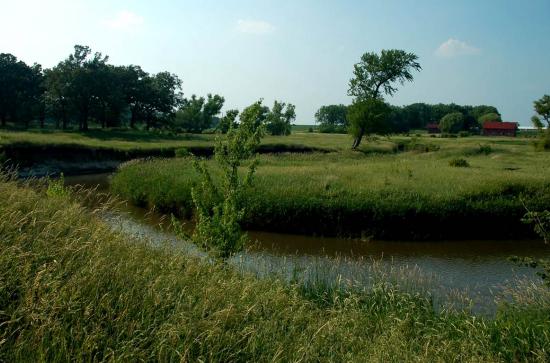
Understanding and predicting the interactions between climate change, land use, and freshwater ecosystem function and services is one of the greatest challenges of this century. Agricultural landscapes are notorious for degrading water quality. Despite considerable advancements in agricultural practices as well as hefty investments in conservation and restoration, efforts to improve water quality have demonstrated limited success. Here we use a suite of state-of-the-art techniques to deconvolve the complex set of coupled human and natural processes that govern water quality in the agricultural upper Midwestern US. Maintaining multiple working hypotheses and using multiple, redundant lines of information we developed a robust understanding of factors controlling water quality at the landscape scale. Specifically, we discovered a major shift in sediment sources that has occurred over the past few decades in the upper Mississippi River Basin, which has important implications for nutrient transport and ecosystem health. With a better understanding of biophysical processes controlling water quality we developed a reduced complexity model with a diverse stakeholder group to evaluate the costs and benefits of numerous portfolios of future management options to restore water quality in a cost-effective and ecologically sound manner, while maintaining agricultural productivity.
4.00-5.30pm
Thursday March 30, 2017
Rocque Lab, Ground Floor,
Rhetoric House
Maynooth University
